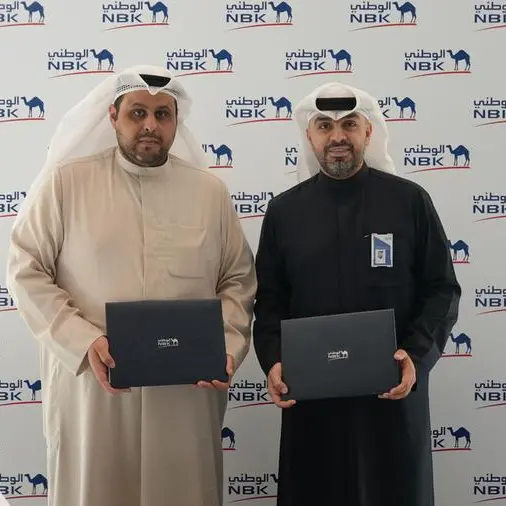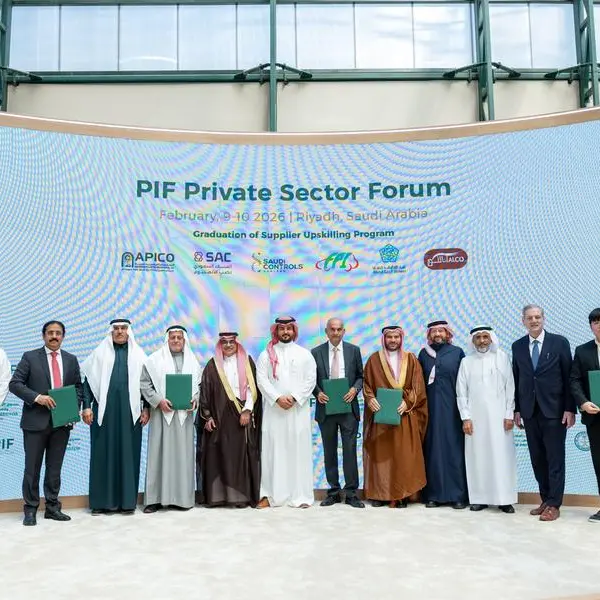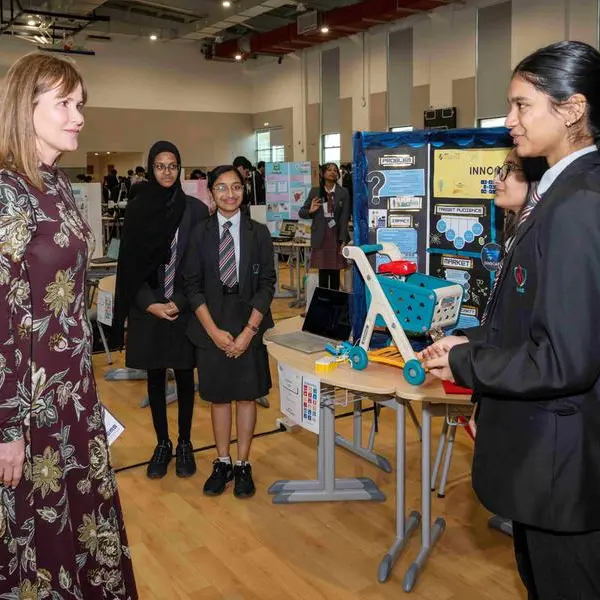Abu Dhabi, UAE – Held on the side lines of the 31st Abu Dhabi International Book Fair (ADIBF) 2022 – organised by the Abu Dhabi Arabic Language Centre (ALC), part of the Department of Culture and Tourism - Abu Dhabi (DCT Abu Dhabi) – the first International Congress of Arabic Publishing and Creative Industries continued with a series of panel discussions examining the latest trends in publishing.
One session, titled ‘Education and Publishing in the Virtual World’, discussed the wide-reaching effects of the pandemic on the education sector. It examined how students around the world of all age groups used remote education, which brought significant attention to digital learning platforms and systems that relied on academic publishing. The session explored the dominance of these new platforms in the education sector and whether open access education will eventually become a reality.
Moderated by Hanada Taha Thomure, Endowed Professor of Arabic Language and Director of the Arabic Language Centre for Research and Development at Zayed University, the panel consisted of Cristóbal Cobo, Senior Education Specialist with the World Bank; Al Kingsley, CEO of Edtech Company NetSupport and Chair of Multiple Educational Boards; Bissan Korban, Head of Higher Education Products and Services for the MENAT Region at Pearson ME Publishing; and John Russell, Director of Education at Alef Education.
In his session, Cristóbal Cobo said: “This current inspiration that technology will revolutionise the education industry is not new; we have known this for years. During the pandemic, we saw people worldwide invest a lot into technology to enable remote learning. However, in many cases, it led to ineffective learning and had a lot of gaps, especially between students and teachers. We need to teach both students and teachers how they can learn to think with these digital tools and not just how to use them. We need to enable them to learn how to distinguish between different types of information and form their own opinion. During the pandemic, we learned that human connection is not replaceable by technology, but we have to develop new capacities and be open for serious transformations as no one can be certain of what the future holds.”
In stressing the importance of holistic growth, Al Kingsley said: “When we think back to school memories, we remember interacting with our peers, school performances, activities with our classmates. Students experienced isolation during the pandemic as they lost peer-to-peer contact, which is essential for their development. There was an attempt to mitigate this digital divide by introducing technology solutions by providing personalised learning. I urge you to ask yourself what are we trying to achieve? Is it students who leave with the most knowledge or a system that creates well-rounded students who focus on their mental health, social skills, and academic greatness? So, how are we going to create these positive experiences? First, we need to ingrain confidence. Our teaching staff needs to develop confidence in integrating technology and students need to develop confidence in using it to benefit from technology truly.”
Bissan Korban, emphasised the importance of prioritising consumer needs. She said: “Every sector suffered due to the pandemic. The education sector was forced to create different learning experiences, which paved the way for the future of digitisation. This learning experience taught us that we need to look at the need of our users and then provide them with tools that enable better futures. If companies and publishers are truly interested in the needs of all stakeholders involved in education, we will observe effective communication taking place and creating an impact.”
John Russell discussed how AI and innovation can support creating learning pathways. He said: “With AI, we can provide highly personalised learning that is catered to students’ needs. By using generative language technology, students will have access to learning exercises created with their specific needs in mind, compared to a single book published years ago that is being used to teach all students. When we analyse data, we observe that student performance differs according to geographical location - students in densely populated areas and cities outperform students in the countryside. By combining AI and innovation, we can provide support in creating learning pathways, ultimately creating an ecosystem that focuses on end-to-end growth.”
The session was followed by a Keynote Speech titled ‘Reading in a Time of Distraction’, delivered by Nicholas Carr, a Pulitzer Prize finalist for his book The Shallows: What the Internet Is Doing to Our Brains, and New York Times bestselling author.
Carr spoke about the impact of mobile technology on the human ability to immerse oneself in deep reading. “It’s important to talk about this today as deep reading is under threat, and I think we all know why it’s under threat and it’s this thing we have in our pockets – the smartphone,” he said. “This new technology is not something that wants us to engage in deep reading, it has an adversarial relationship and does not want us to be lost into the pages of a book.
“When we spend a whole lot of time looking at our mobile screens or computer screens, we no longer use the criterion of importance to grab our attention, instead, we look at what is new, by looking at what is newest on our phone. The ability to take information and transforming into knowledge in essence is affected by that. Books are shields against distraction, through providing active immersive experiences, a reader is not only reading the words but experiencing them, bringing their own thoughts, ideas and emotions into the book”.
The Congress went on to discuss the role social media is playing in book publishing, where leading Western publishers are looking to collaborate with authors who have platforms and huge followings on social media. Titled ‘Is Social Media the New Book Market?’, the session highlighted how publishers are investing heavily in digital marketing as e-commerce gains ground in the book market, asking if this a bubble or a solid trend. Panellists also explored if the Arabic market has the same relationship to social media as other markets, and how influential are ‘booktubers’ and TikTok influencers in terms of book sales.
This session was moderated by Ed Nawotka, International and Bookselling Editor at Publishers Weekly, and brought together Sami Al-Batati, Founder and Presenter of YouTube channel ‘The Shadow of the Book’; Annie Arsane, Head of Platform Strategy for METAP at TikTok; and Joelle Yazbeck, Partner Manager for MENA at Twitter.
Sami Al-Batati said: “The publishing industry has the reader, the author and the critic. With booktubers, it is just readers and critics: readers consume the content while critics use their tools and standards to critique. Booktubers consume and share their personal experiences on the subject they read. Book reviews published by Al-Batati have reached 10 million views on YouTube, allowing a book reviewing community to widely grow in the Arab world.”
Annie Arsane said that the book reading community on TikTok has grown to 54 billion views globally. “People today love talking about the books they read, this has been a reality across time, but the problem is how do you find a person who has read a book that you have read and how do you find someone who has interesting recommendations. What media platforms have done is creating a space for people to have this discussion,” she said.
Joelle Yazbeck said: “On Twitter, we provide the ability for the public to engage directly with the authors, breaking the barriers and providing a real engagement for both. When a book is published and conversations are happening around it, the reader or the author have the ability to influence the public who start following the conversation and discussions on that book or subject.”
-Ends-
About Abu Dhabi Arabic Language Centre
The Abu Dhabi Arabic Language Centre, established following a directive from His Highness Sheikh Khalifa bin Zayed Al Nahyan, President the United Arab Emirates and Ruler of Abu Dhabi, as part of the Department of Culture and Tourism – Abu Dhabi, works to support Arabic language development and modernisation through comprehensive strategies and frameworks, enrich the scientific, educational, cultural and creative contributions of the Arabic language, promote Arabic language proficiency and cultural understanding, and support Arab talents in the fields of writing, translation, publishing, scientific research, arts, content creation and organisation of book fairs. The Centre works to realise its foundational vision through dedicated programmes, human expertise, and meaningful partnerships with the world’s most prestigious technical, cultural, and academic institutions.
About the Department of Culture and Tourism - Abu Dhabi
The Department of Culture and Tourism – Abu Dhabi (DCT Abu Dhabi) drives the sustainable growth of Abu Dhabi's culture, tourism and creative sectors, fuels economic progress and helps achieve Abu Dhabi's wider global ambitions. By working in partnership with the organisations that define the emirate's position as a leading international destination, DCT Abu Dhabi strives to unite the ecosystem around a shared vision of the emirate's potential, coordinate effort and investment, deliver innovative solutions, and use the best tools, policies, and systems to support the culture and tourism industries.
DCT Abu Dhabi's vision is defined by the emirate's people, heritage, and landscape. We work to enhance Abu Dhabi's status as a place of authenticity, innovation, and unparalleled experiences, represented by its living traditions of hospitality, pioneering initiatives and creative thought.



















